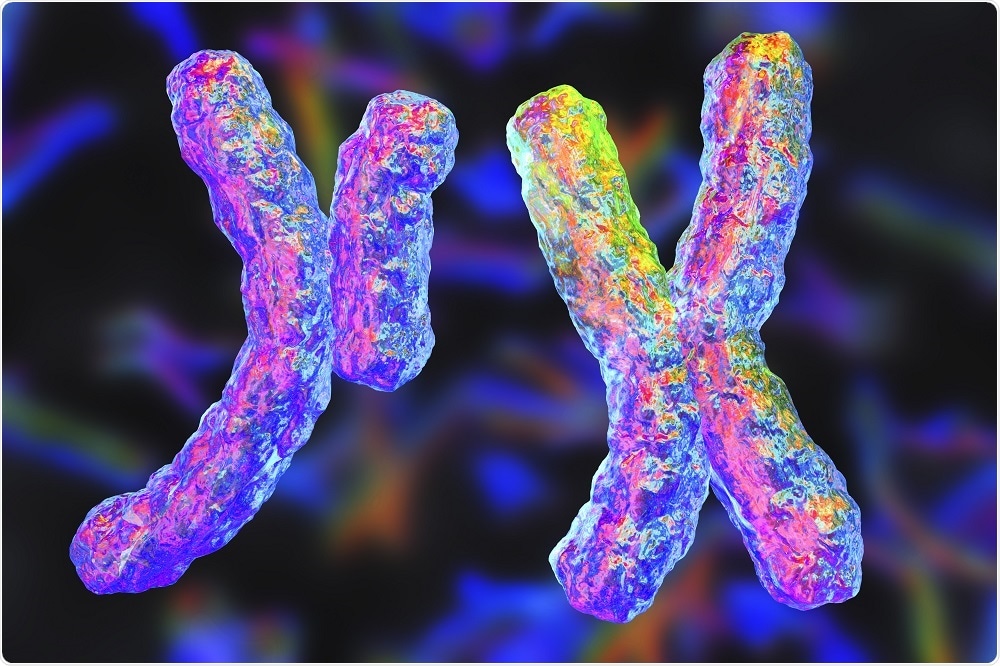Researchers at the University of Melbourne have made an important discovery that explains why some babies are born with disorders of sex development.

Kateryna Kon | Shutterstock
The study suggests that a critical regulatory gene carried on the Y chromosome increases or decreases the activity of particular gene that determine whether a baby will be male or female.
First author Brittany Croft says the critical gene is called SRY. It induces another gene called SOX9 to trigger the development of testes and high concentrations of SOX9 are required for normal male development.
"However, if there is some disruption to SOX9 activity and only low levels are present, a testis will not develop resulting in a baby with a disorder of sex development."
Lead author, Professor Andrew Sinclair, says that “junk DNA” or “dark matter” forms 90% of human DNA. Rather than carrying genes, this contains regulatory segments of DNA called enhancers that increase or decrease gene activity.
“If these enhancers that control testis genes are disrupted it may lead to a baby being born with a disorder of sex development."
The purpose of the current study was to investigate how enhancers regulate SOX9 and whether their disruption would cause abnormal sex development.
Sinclair says the team found three enhancers that ensure SOX9 is activated to a high level in an XY embryo, leading to normal testis and male development.
"Importantly, we identified XX patients who would normally have ovaries and be female but carried extra copies of these enhancers, (high levels of SOX9) and instead developed testes. In addition, we found XY patients who had lost these SOX9 enhancers, (low levels of SOX9) and developed ovaries instead of testes."
Croft says this sex reversal is caused by gain or loss of the critical enhancers that regulate SOX9, which shows how vital they are for normal male development.
This study is significant because in the past researchers have only looked at genes to diagnose these patients, but we have shown you need to look outside the genes to the enhancers. The key to diagnosing many disorders may be found in these enhancers which hide in the poorly understood dark matter of our DNA.”
Professor Andrew Sinclair, Lead Author